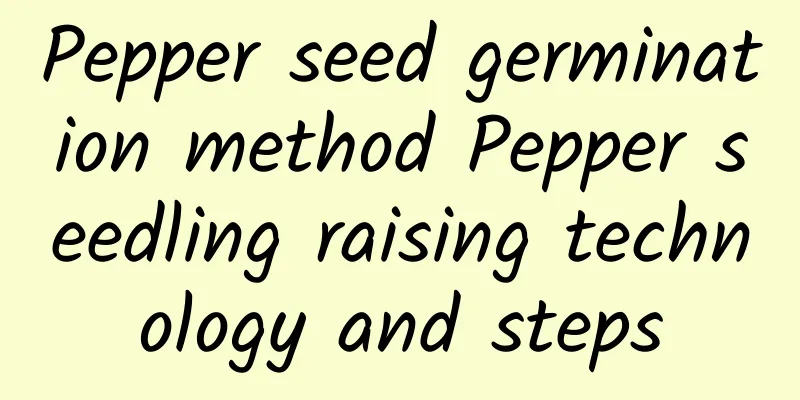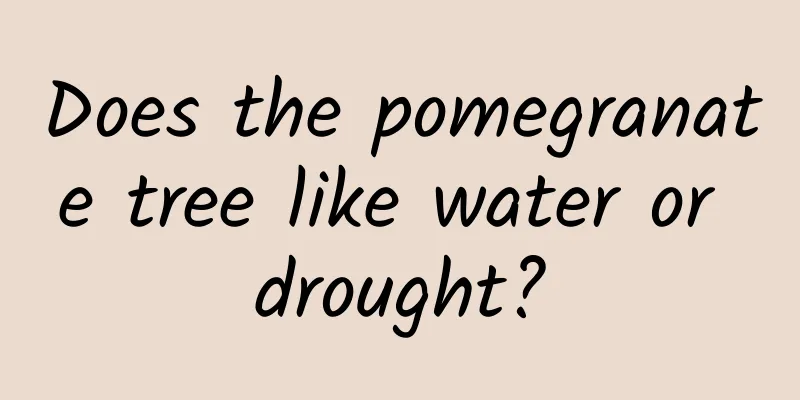Reasons why watermelon flowers but does not bear fruit

|
Every year when the watermelon season comes, some watermelon farmers are always confused because they find that the yield of the watermelons they grow does not seem to be very high. They were very puzzled to see that in some melon fields, flowers were blooming but there were no fruits. Let’s learn about the reasons why watermelons bloom but do not bear fruit. During the watermelon fruiting period, farmers often encounter the problem of empty vines, that is, the plants have many flowers but few or no fruits. This may be caused by the following reasons: 1. Improper fertilization Excessive application of nitrogen fertilizer, especially quick-acting nitrogen fertilizer, can lead to excessive growth of melon vines, incomplete development of female flowers, and small ovaries. Even if pollination occurs, the fruits may fall due to nutritional imbalance. Fruits grown at low nodes are more likely to have empty vines. 2. Variety selection and planting time Choose mid- to late-maturing varieties and plant them late, as they are prone to overgrowth during the rainy season, making it difficult to produce fruits or producing late and small fruits. 3. Unfavorable weather conditions High temperature and drought or low temperature and little sunlight are not conducive to pollen germination and fruit setting. Continuous rain or improper use of pesticides and foliar fertilizers can also increase the risk of young melons falling off. 4. Planting density and management Over-dense planting and late topping lead to poor light and ventilation, leaving the melons at too low a node, causing malnutrition of young melons, which are easily dropped or have reduced quality. 5. To prevent the phenomenon of empty creeping, the following measures can be taken: Choose suitable varieties: For new melon farmers, they should choose varieties that have moderate growth, strong fruit setting ability and are not demanding on environmental conditions. Apply base fertilizer reasonably: The base fertilizer should be mainly decomposed organic fertilizer , avoid using undecomposed chicken manure, reduce the use of phosphorus and potassium fertilizers, especially potassium sulfate compound fertilizer , to increase the sugar content of watermelon and avoid fertilizer damage caused by excessive fertilization. Field water management: Moderate watering during the stem and leaf growth period is helpful for nutritional growth, but the water content should be controlled one week before the female flowers bloom to avoid excessive growth of stems and vines. Avoid spraying fertilizers and pesticides during the flowering period to avoid damaging the pollen. In general, the above measures can effectively improve the fruit setting rate of watermelon, reduce the phenomenon of empty vines, and improve the yield and fruit quality of watermelon.
|
<<: How to divide the miniature coconut palm and when is the best time to divide it into pots
>>: How to prune poinsettias and when to prune
Recommend
How long is the growing period of chives?
How long is the growing period of chives? The gro...
How many years does the hawthorn tree bear fruit?
Introduction to Planting Hawthorn Trees The hawth...
What to do if the leaves of the fortune tree wilt
1. Reduce watering Reason: Do not water too much ...
What are the cultivation methods and precautions for large potted green radish?
How to grow green radish in a large pot The branc...
A complete list of Thai vegetable varieties and pictures. The names of the vegetables that Thai people often eat
Thailand is located in the central part of the In...
How to prune the roots of orchids
Do orchids need root pruning? The roots of orchid...
How to water the lucky tree
1. Determine the watering method Before watering ...
Cucumber seed planting method steps
Before planting cucumber seeds, soak them for abo...
Can mangosteen seeds be eaten?
1. Can I eat it? Mangosteen seeds are not edible....
How to make a hibiscus bonsai
How to make hibiscus bonsai First, plant the hibi...
What are the propagation methods of zapota
How to propagate the flower Method of division Th...
How to grow Monstera
1. Maintenance conditions 1. Water: Monstera requ...
When does rosemary bloom
Flowering period Rosemary is a perennial herb tha...
What do eleven roses represent?
1. The meaning of the eleven branches 1. It repre...
Do cacti prefer shade or sunlight?
Do cacti prefer shade or sun? Cactus likes the su...









